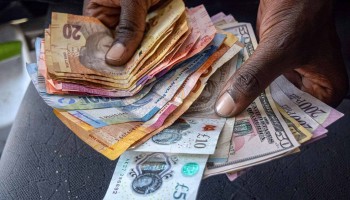The Sentry, an investigative hub that tracks dirty money in African conflicts, said that staggering quantities of gold from conflict-affected Sudan, South Sudan, the Central African Republic (CAR) and the Democratic Republic of Congo (DRC) are being smuggled into neighbouring countries for re-export in order to enrich armed groups responsible for mass atrocities.
These groups either control gold mines themselves, extort gold transports at gunpoint or raid other gold mines to steal reserves. Cross-border smuggling not only hides the gold’s potentially dirty provenance, but also evades the source countries’ higher export taxes.
As a result, neighbouring countries with relatively low gold production are increasingly reporting huge booms in gold exports. While in Uganda, some $443,000 worth of gold was exported in 2014, five years later gold exports were worth around $1.2 billion. In Rwanda, a country that barely produces 30 kilograms of gold annually, exports grew last year by 755%.
These two countries, particularly Uganda, represent the major regional consolidation points for conflict gold, but other countries are also involved. Cameroon, Chad, Burundi, Kenya – smugglers have found willing buyers in many places.
From there, around 95% of the gold goes to the United Arab Emirates (UAE), to Dubai, a key pillar of the international gold trade. The Emirate capital not only has weak customs policies concerning gold imports, but also weak enforcement of those policies, according to The Sentry’s analysis.
“Almost all the conflict and high-risk gold from East and Central Africa ends up in Dubai,” said Megha Swamy, The Sentry’s Deputy Director of Illicit Finance Policy. “The UAE and Dubai’s authorities should urgently close the policy and regulatory loopholes allowing this trade to flourish.”
Finally, the gold is turned into jewelry and bars, ending up in markets in China, the Middle East, Europe and the U.S., where various sectors – including the technology, financial, and automotive industries—use the blood-stained mineral in their products and services.
Addressing this problem will require a multi-layered approach, asserts the report, including persuading governments to harmonize gold export taxes between them, putting greater international pressure on companies to source conflict-free minerals and establishing serious financial and legal consequences for trading in conflict gold.






